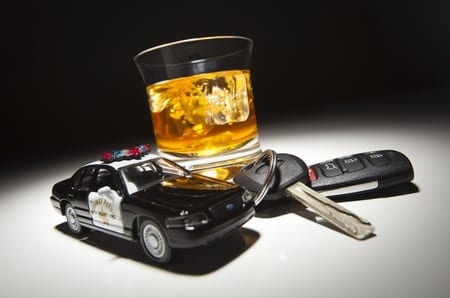 Occasionally, the police arrange DUI checkpoints in many states of America for checking drunk or impaired drivers and motorists. The cops put up the checkpoints at mostly frequented highways during the holiday season. The holiday period is famous for alcoholic abuses including 4th July, Memorial Day etc. Checkpoints are usually the roadblocks on intersection points where police officers stop vehicles randomly at consistent intervals. They check every ninth or tenth driver to check the intoxication signs. Federal laws support their legality but these checkpoints are controversial and banned in some of the states.
Occasionally, the police arrange DUI checkpoints in many states of America for checking drunk or impaired drivers and motorists. The cops put up the checkpoints at mostly frequented highways during the holiday season. The holiday period is famous for alcoholic abuses including 4th July, Memorial Day etc. Checkpoints are usually the roadblocks on intersection points where police officers stop vehicles randomly at consistent intervals. They check every ninth or tenth driver to check the intoxication signs. Federal laws support their legality but these checkpoints are controversial and banned in some of the states.
DUI stop-points have survived many legal challenges in some states. It has steered clear in states where the statutes need a cop to have sensible suspicion for intoxication prior to executing any traffic stop. Sensible suspicion to stop could be confirmed by motorist being drunk, unstable driving, drifting within lanes, or some other doubtful behavior.
The supreme court of United States in 1990 had an engrossing interest to eliminate drunk driving. It believes that public safety is more important than intruding in the private space of drivers. As per the fourth amendment, the case challengers made claims of these checkpoints being unreasonable searches. However, the court noted that these are reasonable given the circumstances. According to the report of Disease control centre of US, alcoholic related accidents drop by 20% with these DUI checkpoints in action. They arrived at the conclusion from the outcome of over 20 scientific studies.
The federal laws advocate checkpoints for maintaining safe and secure roadways. However, it is up to the states to have them or not. These DUI checkpoints aren’t conducted in a total twelve states. According to law or the state constitution, either these are considered as illegal or state authorities have no right to conduct them properly.
Alaska has no state authority for conducting them while in Idaho it is illegal as per state law. The statute which authorizes roadblock does not give permission for sobriety checkpoints in Lowa. Michigan, Minnesota and Oregon consider them illegal as per state constitution. In Montana, the state law gives permission to have safety spot checks only. The Supreme Court’s decision has banned DUI checkpoints at Rhode Island and Washington. In Texas, the checkpoints are illegal as per the state’s interpretation of the United States constitution. As per state law, checkpoints are illegal in Wisconsin and Wyoming bans them as per interpretation of the roadblock statute.
Those who have unintentionally come under the scanner should take the advice of experienced DUI attorney. In case you or your loved ones have been charged for drunk driving, consult a lawyer who has specialization in these legal matters. There are more benefits of consulting an expert for this attorney would evaluate every possible fact and evidence. This also includes the procedures and outcomes of a field sobriety as well as chemical tests. Thus, in all possible ways, the legal expert help would make sure that the rights of his client are safeguarded.
